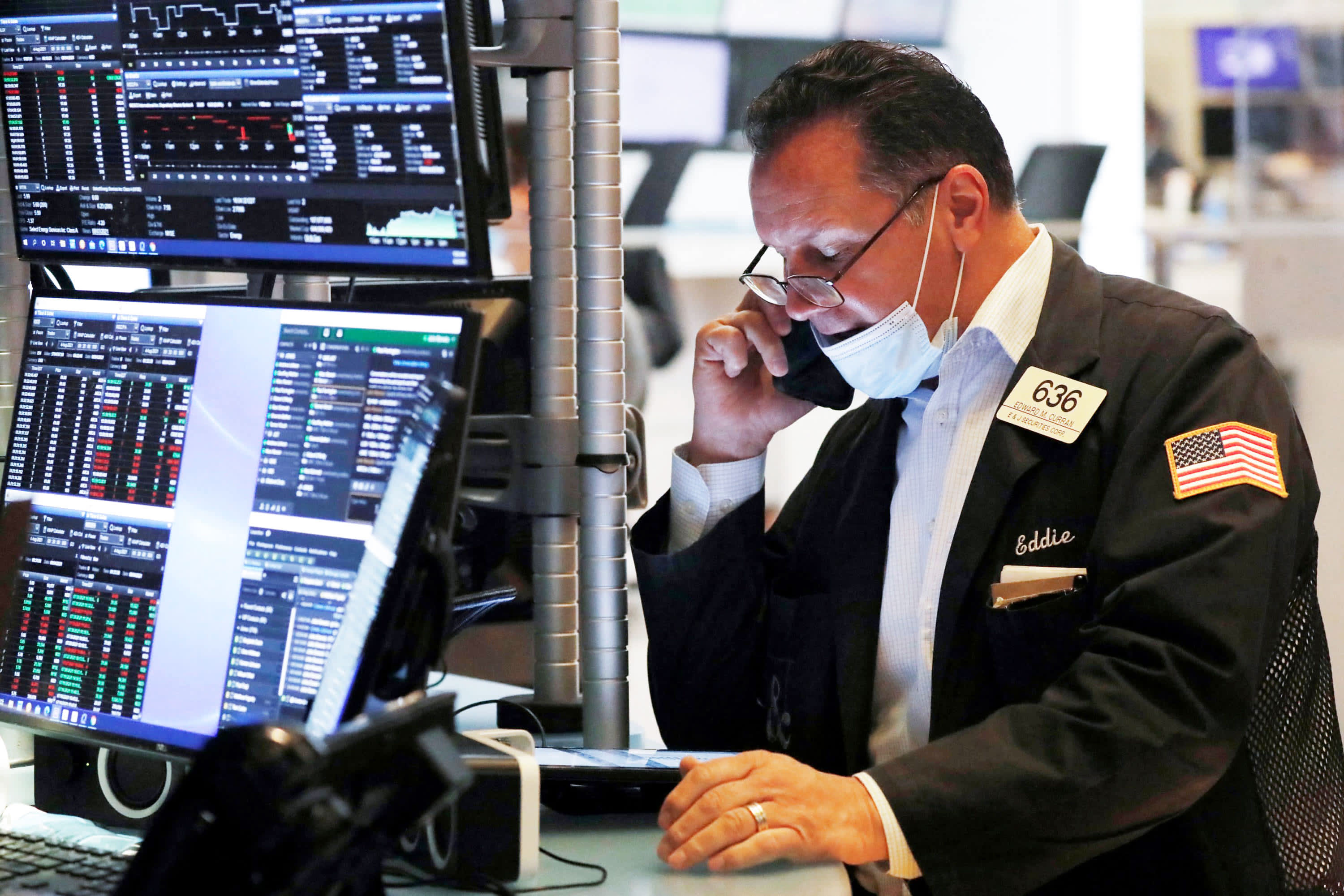Dow falls more than 300 points after retail sales decline

U.S. stock indexes fell Tuesday as July retail sales declined and concerns about slowing global economic growth intensified.
Still, Tuesday’s losses came after the Dow Jones Industrial Average and S&P 500 closed at record highs in the prior session.
The Dow fell around 350 points, or 1%. The S&P 500 shed 0.9% and the Nasdaq Composite lost 1%.
Retail sales declined 1.1% in July, a steeper drop than the 0.3% dip expected by economists surveyed by Dow Jones. The Census Bureau revised June’s reading to a 0.7% jump.
“When we’re looking at the expectations for consumer strength going forward, some of the edge is being taken off by the rise in the delta variant,” BMO Wealth Management’s Yung-Yu Ma said. “These challenges aren’t going to go away quickly.”
Home Depot fell more than 4% after reporting second-quarter results, weighing on the Dow. While quarterly earnings topped estimates, same-store sales rose 4.5% in the period, below the 5% consensus estimate of analysts polled by StreetAccount. U.S. same store sales increased by just 3.4%.
Walmart shares inched higher, then traded near the flatline after second-quarter earnings topped estimates. The retailer gained ground in groceries and reported a strong start to the back-to-school season.
Disappointing economic data from China on Monday intensified concerns about a slowdown in global growth. Chip stocks tumbled for a second day on Tuesday with the iShares Semiconductor ETF down more than 2% and Nvidia about 3% lower. Shares of Tesla and Boeing, both also heavily reliant on China as a growth market, declined.
Meanwhile, technology names trended lower. Big Tech shares, including Google-parent Alphabet, Amazon, Apple and Facebook, traded in the red.
Elsewhere, health care shares saw strength with the S&P 500 Health Care Sector hitting a record high. United Health, Merck and Johnson & Johnson all traded in the green.
The Dow and the S&P 500 notched their fifth straight positive session Monday. The S&P 500’s move during Monday’s session marked a milestone as the benchmark index doubled from its pandemic closing low on March 23, 2020. That marks the fastest bull-market doubling since World War II, according to calculations from CNBC.
Become a smarter investor with CNBC Pro.
Get stock picks, analyst calls, exclusive interviews and access to CNBC TV.
Sign up to start a free trial today




